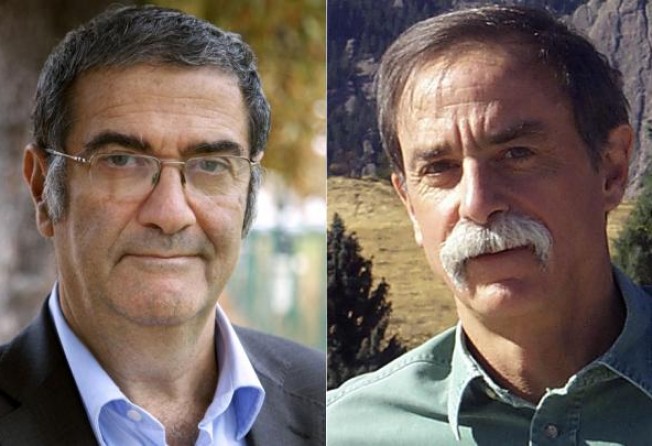French and US scientists share Nobel physics prize for quantum optics work
Quantum optics work could pave the way for new breed of super-fast computer

A US and a French scientist have won the Nobel Prize in physics for work in quantum optics that paved the way for precision clocks and may lead to a new generation of super-fast computers.
Professor Serge Haroche, 68, from France's Ecole Normale Superieure, and Dr David Wineland, also 68, of the National Institute of Standards and Technology in Boulder, Colorado, would share the prize of eight million krona (HK$9.35 million), the Royal Swedish Academy of Sciences said yesterday.
The two scientists' research led to the development of laser-cooled atomic clocks, the world's most precise measures of time, as well as the building blocks of quantum computers, speedy machines that could solve problems such as breaking the most advanced encryption codes.
"Their groundbreaking methods have enabled this field of research to take the very first steps towards building a new type of super-fast computer based on quantum physics," the Nobel physics jury said.
"Perhaps the quantum computer will change our everyday lives in this century in the same radical way as the classical computer did in the last century."
Haroche said the award was "fairly overwhelming".
"I was in the street, passing near a bench, and was able to sit down immediately," he told journalists via a live link to Stockholm. "I was walking with my wife, when I saw the Swedish area code, I realised.
"I think we will have champagne."
American Physical Society president Robert Byer said: "David has been a quiet guy in the industry." Haroche, by contrast, was "a power in the world," he said.
Haroche and Wineland used opposite approaches to examine, control and count quantum particles, the academy said.
Wineland traps ions - electrically charged atoms - and measures them with light, while Haroche controls and measures photons, or light particles.
Christopher Monroe, who does similar work at the Joint Quantum Institute at the University of Maryland, said the awarding of the prize to the two men "is not a big surprise to me … It was sort of obvious that they were a package."
Monroe said that thanks to the bizarre properties of the quantum world, when he and Wineland had worked together in the 1990s they were able to put a single atom in two places simultaneously.
At that time, it was not clear that trapping single atoms could help pave the way to superfast quantum computers, he said. That whole field "just fell into our laps,"' Monroe said.
Agence France-Presse, Bloomberg, Associated Press